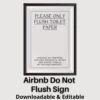Understanding Channel Managers
Alright, so let’s talk about something that can really make or break your Airbnb hosting experience: channel managers. If you’re just stepping into the world of short-term rentals, you might feel like there’s a lot to absorb, especially with all the buzz around this topic. But don’t worry; I’m here to break it down for you in a way that’s easy to digest.
What Exactly is a Channel Manager?
Picture this: a channel manager is like your personal assistant in the Airbnb world, ensuring that your calendars and pricing are in sync across various websites. If you’re only operating on platforms like Airbnb, you might not need this assistant just yet. But for those of you juggling multiple listings across different sites, this tool can be a life-saver, helping you dodge the pesky problem of double bookings. Nobody wants to tell a guest that they can’t stay because of a scheduling mix-up, right?
When Should You Consider Using One?
Knowing when to use a channel manager is crucial. If you’re a solo host with just one or two properties, consider this: do you really need the added complexity and costs? The activated channel manager features can sound enticing, promising automated pricing and a unified inbox, but many of these functionalities are already provided by platforms like Airbnb and VRBO—often, for free. So, unless you find yourself overwhelmed managing a flock of listings, you might want to hold off on diving into channel managers just yet.
The Financial Impact
Ah, yes—the numbers game. Here’s where it gets a bit sticky. When you plug a channel manager into your Airbnb setup, your commission fees reach new heights. Typically, Airbnb’s commission starts around 3%, but it can soar up to 15% once you introduce a channel manager. This means you could potentially be looking at a 12% cut in your earnings, especially if you’re in the U.S. or Canada. That’s real money we’re talking about! Before making the leap, you should ask yourself: “Is this expense really going to benefit my hosting experience?”
Key Channel Manager Features
Now let’s dive into the features that a channel manager might offer. While slick capabilities like automated messaging and dynamic pricing sound great, it’s essential to weigh their real-world application. For instance, automated messaging is a common feature, but platforms you’re likely using already provide it without additional fees.
- Unified Inbox: This organizes messages from different platforms, but is it really necessary? With today’s popular platforms offering this for free, it might not be a game changer for you.
- Dynamic Pricing: Adjusting prices is a key aspect of boosting revenue, but sites like Airbnb allow you to tweak pricing on their platform without needing a middleman.
- Reporting and Analytics: Sounds fantastic, but if you’re only managing one or two properties, you’ll probably find the reporting capabilities from Airbnb sufficient and user-friendly.
- Mobile Access: Sure, it’s handy to have a mobile app, but check reviews and make sure it’s reliable—no one likes a buggy app, particularly when you’re in the middle of juggling reservations.
Let’s not forget the buzz around multichannel integration. While it promises exposure across various platforms, the reality is that most of your bookings will come from big players like Airbnb, VRBO, and Booking.com. Expanding your reach to less-known platforms might create more work without significant returns.
Weighing the Good and the Bad
So, what if you’re still intrigued by the thought of a channel manager? It could save you time and effort—particularly if you manage multiple listings. But, it’s not a one-size-fits-all solution. The joys of channel managers may shine brighter for super hosts or property managers managing several rentals. Remember, every seller has their niche—some thrive without a channel manager at all!
As you navigate through these decisions, always keep your specific hosting scenario in mind. The phrase “not every host needs a channel manager” resonates greatly here. It’s important to assess what’s necessary for you before investing. What do you think? Is there something I’ve overlooked, or are you comfortable managing a few listings on your own? Feel free to share your thoughts—there’s a community of hosts eager to share experiences and strategies.
“Not every host needs a channel manager, and it’s important to evaluate your specific needs before investing.” – Expert Airbnb Host
In the end, the objective here is to equip you with the knowledge to make informed choices and sustain your Airbnb properties successfully. After all, you’re in charge of your journey—navigating it with the right tools could just be the key to maximizing your success! Think carefully, assess your needs, and make decisions that align with your hosting aspirations.
Key Features of Channel Managers
When you’re navigating the world of short-term rentals, understanding channel managers can feel like an overwhelming task. But the truth is, knowing the key features can help you make informed decisions about whether to use one for your Airbnb or VRBO listings. Let’s break down what to look for, what might not be necessary, and how to assess the integrations that provide real value.
Critical Features to Assess for Value
First off, let’s talk about what a channel manager actually does. It is essentially a tool designed to keep your booking calendars synchronized across multiple platforms. This is especially handy if you’re renting your property on more than just Airbnb or VRBO. However, if you are only using Airbnb, you might find that a channel manager isn’t essential. Just picture it: a tool that would allow you to avoid double bookings is great, but why pay for it if it’s just you and other hosts share one platform?
Beware the Costs: Integrating a channel manager with your Airbnb listing could turn your usual commission rate of 3% into 15%. That’s a whopping 12% cut from your earnings! So, you need to determine if the features offered genuinely justify that increase. What features will you be using frequently?
Here are some key features often touted by channel managers:
- Automated Pricing
- Unified Inbox
- Dynamic Pricing
- Reporting and Analytics
- Property Management Software (PMS)
- Mobile App Access
- Integration with Third-Party Systems
Why Common Features May Not Be Necessary
At first glance, these features might sound appealing, but let’s delve a bit deeper to see if every single one is vital for you. Take automated messaging, for example. Many major platforms like Airbnb and VRBO actually offer this for free, so paying for it through a channel manager might not give you the bang for your buck you expect.
The unified inbox feature? It sounds interesting, but it’s become fairly common. A channel manager might bundle it in, but if all your major platforms provide similar functions, it might not sway your decision to purchase one. Plus, advanced reporting and analytics features may be more of a hassle than a help if you’re managing just a couple of listings. The tools provided by Airbnb and VRBO would likely suffice!
Moreover, some features like a robust property management system (PMS) cater more towards larger enterprises. If you manage a handful of listings compared to a bustling hotel, this feature may not even make your hit list.
Integrations That Offer Real Benefits
Now, you might be wondering, “What about integration?” This can be one of the more enticing aspects of channel managers, especially when they claim to list your properties across a multitude of platforms. But keep in mind: while spreading yourself across several sites might sound cool, major platforms like Airbnb and VRBO generate the lion’s share of bookings. The risk of complications from managing listings on smaller websites may outweigh the potential benefits.
Also, let’s chat about mobile app access for a moment. It’s become pretty standard, and while it’s important to use a reliable app, what matters most is how intuitively it can manage your bookings and communications. Check reviews before you commit; apps can vary widely in functionality.
Then there’s integration with third-party systems. This feature often gets overlooked, but automation and smart home integrations can significantly boost the efficiency and security of your property. Think smart locks, lights, and security cameras—improving your listing experience for you and your guests. It’s these robust functionalities that can actually make a channel manager worth considering.
“The only platforms you should focus on for bookings are Airbnb and VRBO.” – Experienced Host
Wrapping Up
In evaluating a channel manager, remember to focus on what you truly need. Many attractive features might not serve you well if you’re a small-scale host, and that can save you both money and hassle. It’s essential to choose wisely, concentrating on tools that will genuinely enhance your hosting experience rather than drown you in unnecessary functionalities.
Weighing the Pros and Cons
When you step into the world of short-term rentals, you might hear a lot about channel managers. But what exactly are they, and do you really need one? Let’s dive into the benefits and pitfalls of using a channel manager, especially if you’re just starting out or manage a limited number of properties.
Benefits of Using a Channel Manager
First off, a channel manager is a tool designed to streamline your booking process across various platforms, so you don’t end up with double bookings. Sounds great, right? Managing a single listing on multiple sites like Airbnb and VRBO can be a real headache without one. Using a channel manager can save you a significant amount of time, allowing you to focus on what really matters—providing a great experience for your guests.
“The key is to find a balance between automation and personal interaction with your guests.” – Industry Consultant
Another shiny feature channel managers boast includes automated pricing adjustments based on market demand. If you’re in a competitive area, the ability to automatically adjust your rates can maximize your revenue. Plus, you’ll often find reporting and analytics features that help you understand your performance across platforms, which can be incredibly valuable when planning future strategies.
Potential Pitfalls to Consider
However, before you hit that purchase button for a channel manager, it’s crucial to weigh the potential downsides. For starters, the allure of comprehensive integration and advanced features can be tempting, but many of these tools might be overkill for you if you only manage one or two listings. In fact, platforms like Airbnb and VRBO provide free features that can duplicate what channel managers offer, making them unnecessary. Why pay extra when you can get similar services for free?
There’s also the significant aspect of costs. Many channel managers increase your overall commission fees when integrated with platforms like Airbnb—sometimes from as low as three percent to as high as fifteen. That’s a hefty 12 percent deduction from your earnings, which may not be justified depending on your particular situation. Ask yourself, does the convenience truly outweigh that cost?
Real-Life Experiences of Hosts
As someone who has dabbled in using a channel manager, I can personally attest to the headaches they can bring. I found myself tangled in complex systems and ultimately realized a simpler toolbox often yields better results. Managing my property directly on platforms without the added noise of a channel manager felt much more effective.
Many hosts echo this sentiment. For instance, new hosts might feel that robust reporting and analytics tools are essential for success. Yet, when they dig deeper, they find the reporting functionalities provided by Airbnb or VRBO are mostly sufficient for their needs—without the extra costs involved in using a channel manager. It’s easy to get swept up in the promise of automation when, in reality, you might just need to keep things straightforward.
Striking The Right Balance
Ultimately, while channel managers offer a buffet of features, not every host needs to indulge. While tools for automation and enhanced efficiency can provide undeniable benefits, many find that lighter, more straightforward approaches can be just as effective—if not more so.
A useful strategy is to think critically about what you’re actually managing. If you only have one property, do you really need a sophisticated system? Or can you manage it adequately through existing platform functionalities? You might even discover co-hosting opportunities or utilizing Google Calendar for syncing that work perfectly for your situation.
The decision boils down to your specific needs. The glamorous features of a channel manager might catch your eye, but it’s essential you assess them against the real costs and how they’ll actually impact your rental business. Take stock of what each feature genuinely brings to the table. Maybe keeping it simple is the way to go.
Making the Right Choice
When it comes to managing your rental properties effectively, the question of whether to invest in a channel manager can seem daunting. With all the hype and flashy advertisements out there, it’s easy to get swept up in the latest trends. But let’s clear that up right now: not every host needs a channel manager. In fact, sometimes, less is more.
To start, it’s essential to understand what a channel manager actually does. Its primary function is to synchronize bookings, manage pricing, and maintain your calendar across different platforms. This is especially useful for those listing properties on multiple sites like Airbnb, VRBO, and Booking.com. However, if you’re only using Airbnb, you might want to hold off before adding another layer of complexity to your operations.
One major thing to consider is the costs associated with using these tools. Typically, integrating a channel manager with your Airbnb listing can increase your commission from about 3% to as high as 15%. Do the math: that could mean a direct hit to your earnings. The key takeaway? You should only use a channel manager if it will add substantial value to your hosting experience.
Key Features to Consider
Now, let’s dig into the features that channel managers promise. It’s tempting to get swayed by the fancy buzzwords—think automated pricing, reporting and analytics, direct booking websites, and mobile app access. But many of these features can be found in the platforms you’re already using or may not be necessary for your current scale of operation.
Take automated messaging, for example. While it’s common to rely on a channel manager to handle communication, Airbnb and VRBO offer this feature for free. This means if you’re managing just one or two properties, you can save your budget and avoid the extras that don’t add genuine value.
When you consider features like dynamic pricing and reporting, they can sound appealing but often aren’t necessary for most hosts. If you have only a few listings, the free functionalities offered by major platforms will usually suffice.
Multichannel Integration: A Double-Edged Sword
Multichannel integration might appeal to you if you’re looking to get your property listed across various platforms to maximize visibility. However, let’s be real: the primary sites responsible for the majority of bookings are Airbnb, VRBO, and Booking.com. Spreading yourself thin across minor sites that don’t generate significant traffic can lead to confusion without tangible benefits.
Smaller hosts often find that simpler methods work just fine—like syncing calendars with Google or co-hosting on Airbnb. There’s no need to overwhelm yourself with overly complicated systems if you don’t need them.
Beyond the Basics
There are indeed features that can be extremely beneficial, particularly for tech-savvy hosts. Integration with third-party systems or smart home tools, for example, can result in increased efficiency and enhanced security for your rental properties. Thus, think about which aspects you’ll genuinely use instead of getting caught up in the glam of extra features.
Then, there’s the question of accounting modules. If you find yourself struggling with bookkeeping software, managing your financial records using something as simple as an Excel spreadsheet can be a much more straightforward choice. Ease of use is vital for struggling hosts—especially when dealing with the various stresses that come with managing properties.
“Choose features based on your hosting needs rather than shiny marketing terms.” – Airbnb Expert
Final Thoughts
The bottom line is that when choosing a channel manager, it’s all about finding what works best for you. Don’t rush into a decision based solely on influencer endorsements or flashy ads. Instead, take the time to clarify your needs as a host and assess what tools genuinely fit those requirements.
Remember to take advantage of free trials when they’re available; this will allow you to explore the functionalities without locking yourself into a commitment. I hope this helps guide you in making informed decisions about which channel manager, if any, might be right for you and your properties.
With thoughtful consideration and a clear understanding of your own requirements, you’ll be able to make savvy choices that keep your operation running smoothly. And trust me, that’s what you’ll want in this fast-paced rental market.
So, what are you waiting for? Get started in researching available options, evaluate your needs, and empower your hosting journey!
TL;DR: Don’t rush into using a channel manager. Understand your needs first, assess costs, and consider if the features genuinely benefit your hosting style. Stick with what’s necessary for your operations, and don’t be misled by marketing hype.









